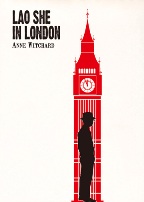-
Architecture
archive
art
Ballard
body
China
cinema
ecology
education
Europe
Ezra Pound
futurology
gothic
image
law
Literature
London
magic
memory
Modern
Modernism
museums
music
novel
performance
photography
poetry
politics
radical philosophy
science
science fiction
Sinclair
Situationism
sound art
Surrealism
technology
television
the avant-garde
The Future
Theory
thomson
time
Urban
visual culture
war
Posts tagged Literature
Death and Space, Somerset House, Oct 23rd
Tagged as Death, Literature, London, photography

Death and Space
Tue 23 October 2012, 6.15 pm
£5 full price; £3 student, unemployed and over 65s
The Deadhouse, Somerset House, The Strand, WC2R 1LA
‘Death and the Contemporary’ is a series of site-specific events organised by our new colleague Georgina Colby, along with Anthony Luvera, that will take place across London in October 2012 as part of the Inside Out Festival. Panel discussions with keynote philosophers, writers, visual artists, and theorists will provide an exciting interdisciplinary forum in which to consider issues surrounding the representation of death in contemporary culture.
The first event, ‘Death and Space’, is scheduled to take place at the Dead House, Somerset House, on October 23rd, 2012. Confirmed panellists include David Bate, Andrea Brady, Robert Hampson and Tom Hunter. A glass of wine in included in the ticket price.
Further details at: http://www.insideoutfestival.org.uk/events/death-and-the-contemporary/
China in Britain.4: Visual and Literary Cultures
Tagged as Architecture, China, Literature, Modernism, photography, visual culture

China in Britain: Myths and Realities
Aesthetics: Visual and Literary Cultures
December 8th 2012, 9:30am – 4:00pm
The Cayley Room, 309 Regent Street, London W1B 2UW
You are warmly invited to the fourth in this University of Westminster/AHRC funded series. The day will present an eclectic programme with presentations on modernist architecture, fashion and literature, chinoiserie, and both literature and photography ‘then and now’. Speakers in the morning are Sarah Cheang (Royal College of Art), Edward Denision (Bartlett, UCL), Patricia Laurence (City University of New York), and David Porter (Michigan). The afternoon sessions will include a presentation by photographer Grace Lau and conversations with Paul French, author of Midnight in Peking (Penguin 2012) and novelist Xiaolu Guo. The day will end with a drinks reception.
The full programme along with abstracts and biogs can be found at: www.translatingchina.info
Entrance – including lunch and refreshments – is free of charge so for catering purposes it is essential to book your place by emailing: anne@translatingchina.info

Advance news of the next series of English Literature and Culture research seminars taking place in the first semester this year.
Seminars are fortnightly on Wednesday afternoons, from 4pm to around 5.30pm, and will be held in room 106 in the University’s Wells Street building.
Wednesday 17th October
Christopher Daley (University of Westminster)
‘Too Many Machines’: British Science Fiction Film and Television of the 1950s
Wednesday 31st October
Zara Dinnen (Birkbeck College)
Did we Miss it? The Legacy of Cyberculture in Contemporary Representations of Digital Technology
Wednesday 14th November
Bianca Leggett (Birkbeck College)
Englishness Elsewhere: Considering Cosmopolitanism in the English Travel Novel
Wednesday 28th November
Martin Eve (University of Sussex)
‘Opening children’s eyes’: Pynchon, Bolano, Overloaded Forms and the Didactic Function
Lao She in London out now!
Tagged as China, Literature, London, Modernism
We’re delighted to announce the publication of Anne Witchard’s new monograph from Hong Kong University Press, Lao She in London. Focusing on one of China’s great modern writers, the book contributes to the rethinking of modernism as an event outside the boundaries of a single language, a single historical moment, or a single national formation.
“A beautifully written book that combines literary biography with a remarkably succinct account of British modernism and an evocative portrait of interbellum London, as viewed through Chinese eyes. Anne Witchard reminds us eloquently of the key role played by Chinese influences—both classical and modern—in literary modernism, and makes a great contribution to our understanding of Lao She’s London years.” — Julia Lovell, Birkbeck College, University of London
Details at: www.hkupress.org/book/9789888139606.htm
August 2012 188 pp. 14 b/w illus.
Paperback ISBN 978-988-8139-60-6
Nuclear Criticism
Tagged as Europe, Literature, novel, technology, war

Great piece by Chris Daley in the new online journal Alluvium about nuclear criticism. Here’s the first paragraph:
In 1984, the journal Diacritics set out to define what it labelled as the developing academic terrain of ‘nuclear criticism’. The opening section of the journal entitled ‘Proposal for a Diacritics Colloquium on Nuclear Criticism’ established that ‘critical theory ought to be making a more important contribution to the public discussion of nuclear issues’ and proceeded to list a series of nuclear themes that required immediate consideration. Among these were an examination of the nuclear arms race and the ‘dialectic of mimetic rivalry’ it provoked, ‘the power of horror’ and most pertinently ‘the representation of nuclear war in the media as well as in the literary canon’. This last topic was all the more powerful for a mid-eighties audience as the early years of the decade had seen a re-emergence of nuclear anxieties that were reminiscent of the fears twenty years earlier during the Cuban Missile Crisis. The election of Ronald Reagan in 1980 and his subsequent verbal assaults on the ‘evil empire’ of the Soviet Union, energised the ferocious ideological divide between the two superpowers that had ebbed and flowed in intensity throughout the Cold War. Meanwhile, in both the United States and Britain a variety of cultural and media productions speculated on the consequences of such intense political rhetoric. While these texts were predominantly non-canonical and therefore often overlooked by the nuclear critics, they nonetheless question and evaluate the purpose of the nuclear referent in the political power struggle of the Cold War.
Read further at: http://www.alluvium-journal.org/2012/07/01/nuclear-criticism/
Narratives of Suburbia Programme Announced!
Tagged as Literature, London, Urban

Narratives of Suburbia
Friday 15th June 2012, 9.15am – 5.15pm
Room 354, University of Westminster, 309 Regent Street, London
Programme attached here: Narratives of Suburbia Programme[1]
Entrance is FREE but space is limited so please book your place in advance by contacting the organisers, Christopher Daley (daleyc@westminster.ac.uk) and Aisling McKeown (A.Mckeown@westminster.ac.uk).
Narratives of Suburbia conference
Tagged as Literature, London, novel, Urban

Narratives of Suburbia
Friday 15th June 2012, 9.15am – 5.15pm
Room 354, University of Westminster, 309 Regent Street, London
Programme: Narratives of Suburbia Programme[1]
The Department of English, Linguistics and Cultural Studies at the University of Westminster is delighted to host the 17th Westminster Colloquium entitled ‘Narratives of Suburbia’ on Friday 15th June 2012. The colloquium aims to assess contemporary representations of suburbia in British and North American fiction, with a particular focus on the exponential growth of suburbia since the Second World War and the fictional offshoots it has produced. By exploring the work of Anglo-American authors, the objective is to identify thematic and stylistic areas of convergence and divergence.
Speakers:
John Beck (Newcastle)
Christine Berberich (Portsmouth)
Professor Neil Campbell (Derby)
Mark Clapson (Westminster)
Martyn Colebrook (Hull)
Martin Dines (Kingston )
Nick Hubble (Brunel)
Rupa Huq (Kingston)
Entrance is FREE but space is limited so please book your place in advance by contacting the organisers, Christopher Daley (daleyc@westminster.ac.uk) and Aisling McKeown (A.Mckeown@westminster.ac.uk). Full programme to follow.
Th
Rural Idyll in Contemporary Irish Fiction and Film seminar
Tagged as cinema, Ireland, Literature
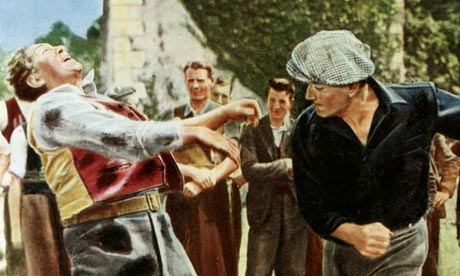
Wednesday 21st March, 1.15pm – 2.30pm
Room 257, University of Westminster, 309 Regent Street
Aisling McKeown (University of Westminster)
‘Once Upon A Time In The West: the Rural Idyll in Contemporary Irish Fiction and Film’
Abstract: In 1952, John Wayne starred in John Ford’s film The Quiet Man, set in the west of Ireland. Playing a returned Irish-American emigrant, rather than his more customary role as that potent symbol of the American west, the cowboy, Wayne cut a swathe through Ireland’s wild landscape. The film projected an image of Ireland as a rural idyll, populated by fiery yet charming natives. Contemporary film-makers and writers, unless being deliberately ironic, tend to avoid such clichéd treatment of rural Ireland. Combining discourses of tradition and modernity, their representations reflect the socio-cultural evolution of this remote location, which inspired Yeats and Synge over a century ago. This paper will trace the development of these representations and discuss the blend of mythology and realism that underpins the work of today’s writers as they address such themes as immigration, identity and belonging.
Socialism, Literature and the Radiant Future seminar
Tagged as Literature, Modernism, politics, the avant-garde, The Future

Wednesday 7th March, 1.15pm – 2.30pm
Room 257, University of Westminster, 309 Regent Street
Matthew Taunton (Queen Mary, University of London)
‘Socialism, Literature and the Radiant Future: Before and After 1917’
Abstract: The idea that a “radiant future” (in Zinoviev’s phrase) was just around the corner was central to the Soviet myth. But how were Western ideas about the future affected by the advent of the Bolshevik revolution? This paper will suggest that the bright eyed visions of the future prevalent in the fin de siècle and the Edwardian period were increasingly replaced, after 1917, by sectarian debates about Russia. The future had become a spatial, rather than a purely temporal entity – whether it was to be welcomed as the true democracy (Shaw, the Webbs) or feared as a totalitarian nightmare (Orwell, Koestler, Nabokov). Speculative fictions like those of Morris, Bellamy, and Wells gave way to anti-Communist texts like Darkness at Noon, Nineteen Eighty-Four and Bend Sinister, and endorsements of Stalinism by Day Lewis, Shaw and others. This paper explores a range of ways in which ‘the future’ had to be rethought in light of the events of 1917.
PLEASE NOTE: We have changed seminar rooms this week and will be in Regent Street room 257.
Wyndham Lewis and Cinema talk, Feb 22nd
Tagged as cinema, Literature, Modernism, Theory

Wednesday 22nd February, 1.15pm – 2.30pm
Room 359, University of Westminster, 309 Regent Street
Anthony Paraskeva (University of Dundee)
‘Wyndham Lewis, Cinema Hypnotism and the Frankfurt School’
The London Reading Club
Tagged as Literature, London, novel, Urban

A quick plug for the London Reading Club, a new blog for the book group attached to the MA Writing the City at the University of Westminster, which is run by our own Monica Germana. Check out posts that discuss London writings ranging from Virginia Woolf to Monica Ali here: http://thelondonreadingclub.wordpress.com/
Literature Research Seminars, Feb-March 2012
Tagged as Literature, Modernism
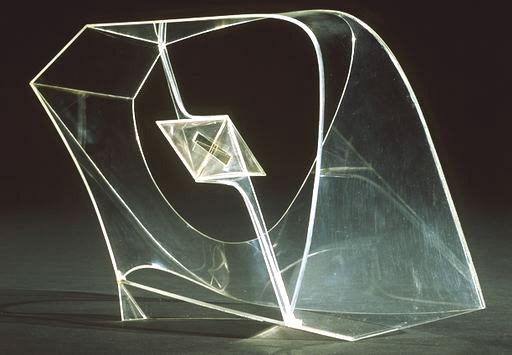
A heads up on the line up of speakers and list of dates for this semester’s series of English Literature and Culture seminars. All will take place from 1.15-2.30pm on Wednesday lunchtimes in the University’s Regent Street building (room 359).
8th February 2012
Morgan Daniels (Queen Mary, London)
‘Satire and Childishness’
22nd February 2012
Anthony Paraskeva (University of Dundee)
”Wyndham Lewis, Cinema Hypnotism and the Frankfurt School’
7th March 2012
Matthew Taunton (Queen Mary, London)
‘Socialism, Literature and the Radiant Future: Before and After 1917’
21st March 2012
Aisling McKeown (Westminster)
‘Once Upon a Time in the West: Rural Idyll in Contemporary Irish Fiction and Film’
Further details at: http://seminarserieswmin.wordpress.com/2012/01/11/semester-two-seminars-unveiled/
Anne Witchard talk on Lao She, Weds 7 December
Tagged as China, Literature, London, Modernism
.jpg)
The IMCC’s Anne Witchard will be speaking about her forthcoming book at the following event organised by our friends in the Contemporary China Centre:
Wednesday 7 December 2011, 4.30-6.30pm
Westminster Forum, Fifth Floor, 32-38 Wells Street, London W1T 3UW
‘Lao She: A Chinese Writer in Modernist London’
Anne Witchard (University of Westminster)
Chinese cultural and intellectual texts engaged in various ways with Western constructions of modernism. Of these exchanges and encounters, my focus in this paper will be on the early life and work of the famous Chinese novelist and short story writer, Lao She (1898 – 1966). Lao She was uniquely positioned in his engagement with specific conditions of modernity and nationhood both in Britain and in China. By birth a disenfranchised Manchu, he lived and worked in London during the late 1920s, a period seen as the apex of high modernism and his writing registers this interaction in ways that suggest we rethink his work beyond the parameters of the socialist realist tradition to which, chiefly because of his proletarian magnum opus, Rickshaw Boy (1936), it has largely been confined. Reading Lao She as an incipient modernist, initiating in China new subjects and new styles of writing in the endeavour to remake the sensibility of the Chinese people, serves also to unsettle Eurocentric considerations of modernism as exclusively Western, its place of origin unquestionably the metropolitan West.
Anne Witchard teaches in the Department of English, Linguistics and Cultural Studies at the University of Westminster. She specialises in representations of China and the Chinese in early-twentieth-century Britain (see her book Thomas Burke’s Dark Chinoiserie, Ashgate, 2010; and most recent of various papers, a chapter in the collection Chinatowns in a Transnational World, Routledge, 2011). Her book Lao She, London and China’s Literary Revolution will be published in Autumn 2012 by the University of Hong Kong Press.
All welcome, but non-Westminster attendees should register in advance with Derek Hird: d.hird@westminster.ac.uk

Wednesday 23 November, 1.15pm – 2.30pm
Room 359, 309 Regent Street, University of Westminster
Samuel Thomas (Durham University)
“The Gaucho Sells Out: Thomas Pynchon, Nation Building & Argentina”
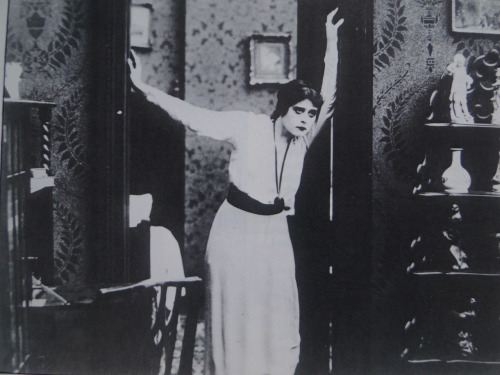
Wednesday 16 November, 4.15pm – 5.45pm
Room 312, Wells Street, University of Westminster, London W1T
‘Pragmatic Implicature and the novel’
Ruth Schuldiner, University of Oxford
This paper will discuss the sustained use of implicature to communicate central, unambiguous elements of plot in fiction novels; specifically, it will look at instances in which a reader’s understanding of an implicitly communicated event is integral to their understanding of the remainder of the narrative. It is proposed that, in third-person narratives, a perceived context of fictionality is depended upon for the construction of some of these implicatures: many of them exploit the perceived omniscience of the narrator, and by extension the fictionality of the text. This conclusion feeds into a broader argument concerning the possible differences associated with reading fictional vs. nonfictional texts, or how an assumed context of either fictionality or nonfictionality affects readers’ interpretations of individual utterances and the coherence of narratives as a whole. When an author chooses to communicate central narrative information through implicature, the reader is faced with the important puzzle of why an omniscient persona would opt for an inarticulate mode of communication. It is this implicitly posed question that emphasizes the relevance of the implicatures to their context, dispersing the ambiguity of superficial ellipses. The paper discusses excerpts from M.E. Braddon’s Lady Audley’s Secret to evidence the argument.

Words and Wars
Group for War and Culture Studies Research Seminar
Monday 21 November 2011, 5.30-7.30pm
Room 152, University of Westminster, 309 Regent Street, London W1B
Adam Piette (University of Sheffield), “Sputniks, Ice-Picks, KGB: Nabokov’s Pale Fire”
Adam Piette is the author of Remembering and the Sound of Words: Mallarmé, Proust, Joyce, Beckett and Imagination at War: British Fiction and Poetry, 1939-1945. His latest book, The Literary Cold War, 1945 to Vietnam (Edinburgh University Press, 2009), is a study of the psychological and cultural impact of the Cold War on the imaginations of citizens in the UK and US. The Literary Cold War examines writers working at the hazy borders between aesthetic project and political allegory, with specific attention being paid to Vladimir Nabokov and Graham Greene as Cold War writers. The book looks at the special relationship as a form of paranoid plotline governing key Anglo-American texts from Storm Jameson to Sylvia Plath and Ted Hughes, as well as examining the figure of the non-aligned neutral observer caught up in the sacrificial triangles structuring cold war fantasy.
Alan Morrison ( University of Westminster), “Virginia Woolf: War and Patriarchy”
Alan Morrison is also a Research Associate at the Smithsonian’s National Museum of American History, and teaches on the Museum Studies Master’s Program at Johns Hopkins University. He is currently working on education and exhibition programmes linked to the centenary commemorations of World War I.
Including Book Launch for Adam Piette, The Literary Cold War, 1945 to Vietnam
Entrance FREE but RSVP Dr Caroline Perret: C.Perret@westminster.ac.uk or tel. 020 7911 5000 ext. 2307.
Fictions of the Not Yet
Tagged as Literature, novel, science fiction, The Future, time

Wednesday 9 November, 1.15pm – 2.30pm
Room 359, 309 Regent Street, University of Westminster
Caroline Edwards (University of Lincoln)
‘Fictions of the Not Yet’
As the first decade of the twenty-first century comes to a close, there is a growing critical awareness of the current fascination with alternative and future worlds in contemporary British fiction. In addition to the continuing popularity of – and growing scholarly interest in – speculative and genre works, an emerging body of “literary” fictions is revealing a wide-ranging preoccupation with narratives of apocalypse, transmigration and haunting. Writers like David Mitchell, Jeanette Winterson, Jim Crace, John Burnside, Marina Warner, Maggie Gee, Jon McGregor and Sam Taylor are thus shifting the parameters of realist literary fiction and its generic borrowings, and in the process articulating a shared concern with the question of temporality. We need to develop a new strategy of reading such fictions in order to examine the formal innovations executed by these visions of temporal alterity and futurity. This paper will outline a refunctioning of Ernst Bloch’s category of the “Not Yet” (Noch Nicht) in order to provide a methodological framework that can draw out the distinctly utopian implications that are prevalent in the contemporary British novel. This refunctioning not only reconsiders the relationship between philosophical discourse and narrative imaginaries, but also helps us outline the distinctive structural, thematic and stylistic characteristics shaping an emerging caucus of fictions.
Ranciere review
Tagged as Literature, radical philosophy, Theory

David Cunningham’s review of Jacques Ranciere’s The Politics of Literature, published in the latest issue of Radical Philosophy, is currently up as a freebie on the website. You can read it here: http://www.radicalphilosophy.com/uncategorized/flaubert%e2%80%99s-parrot
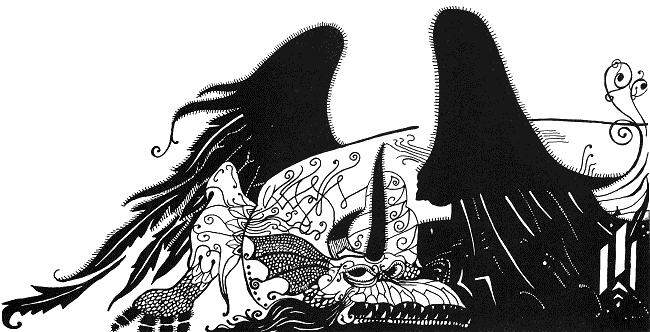
Wednesday 26th October, 1.15pm – 2.30pm
University of Westminster, 309 Regent Street building, room 359
Anna Katharina Schaffner (University of Kent)
‘Havelock Ellis and the Literary Imagination: On Sexology and Fiction’
Many important nineteenth- and early twentieth-century pioneers of the scientific study of sex make extensive use of literary sources in their works. Not only do they adopt terms and concepts from fictional sources, but literary representations and their authors frequently serve as case studies which are deemed as valid as empirical observations. Surprisingly, this blending of discourses, which has substantially shaped the nosologies of the early sexologists, has received little critical attention. This paper analyzes the epistemological status and functions that are assigned to fictional representations in the works of the British sexologist Havelock Ellis, as well as the wider theoretical ramifications of factualizing fictions. The way in which literary sources are used in Ellis’ and other sexological texts not only sheds light on the production of sexual knowledge and processes of discourse formation, but also brings to the fore the enmeshment of fantasy, language and desire, as well as the dependence of an entire scientific discipline upon narratives – both fictional and factual in nature.
Michael Nath’s first novel La Rochelle was shortlisted for the 2011 James Tait Black Memorial Prize for Fiction. At the award ceremony held at the Edinburgh Book Festival, chair of the judges Lee Spinks outlined his appreciation book in conversation with Sally Magnusson.


The Institute for Modern and Contemporary Culture
University of Westminster Department of English, Linguistics and Cultural Studies
32-38 Wells Street, London W1T 3UW. United Kingdom.

